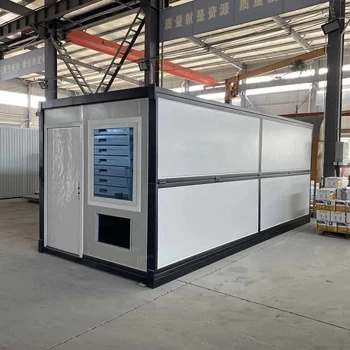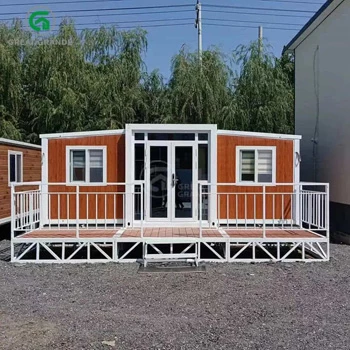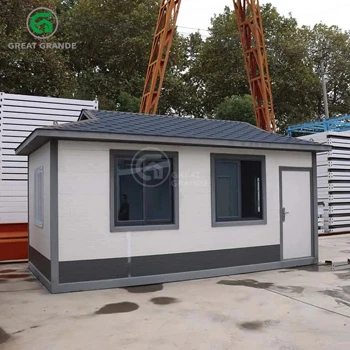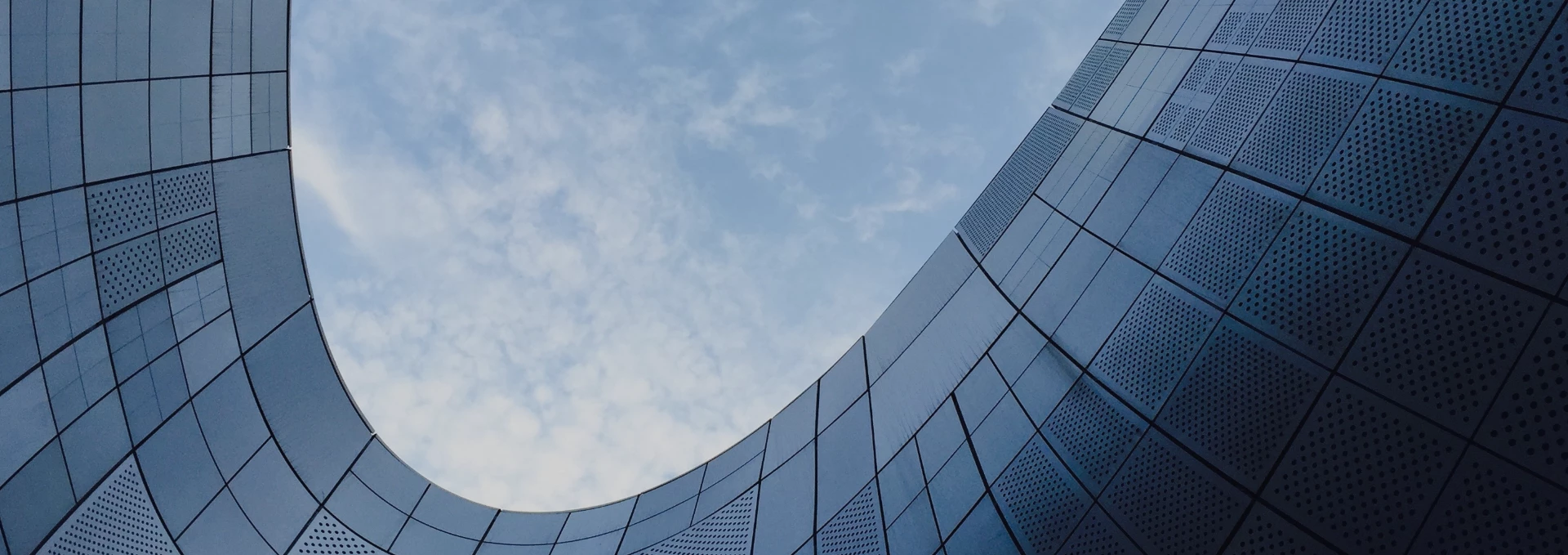Les maisons pliables sont un nouveau type de forme architecturale qui a gagné en popularité en raison de leur flexibilité, de leur portabilité et de l'utilisation efficace de l'espace. Grâce à leur conception modulaire et à l'application de matériaux de construction modernes, elles offrent une solution de vie qui s'adapte aux modes de vie modernes. Il existe plusieurs types de maisons pliables, les plus courantes étant la maison pliable extensible, la maison pliable en kit et la maison pliable triangulaire.
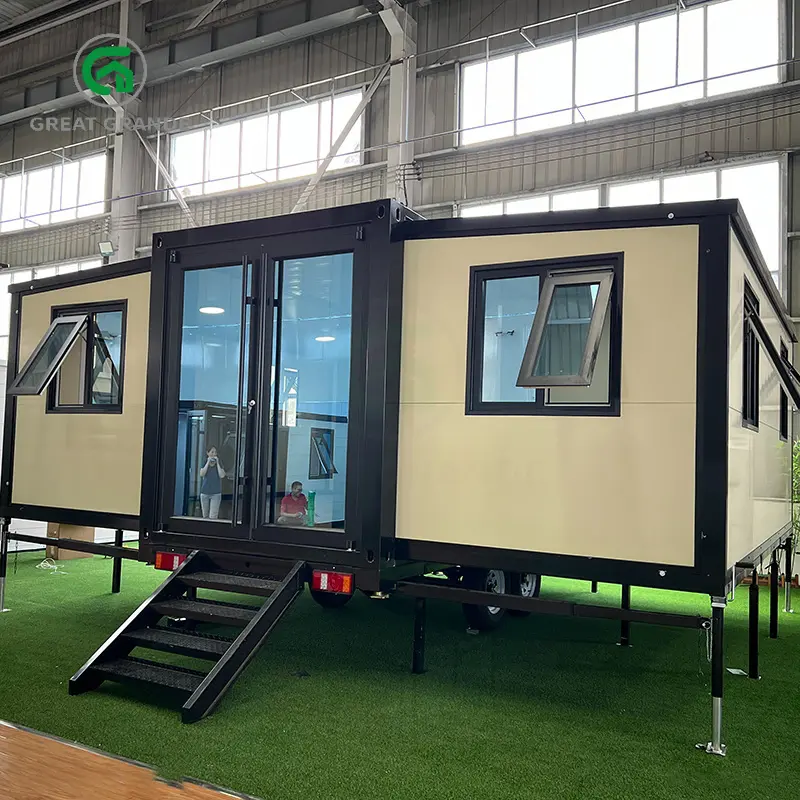
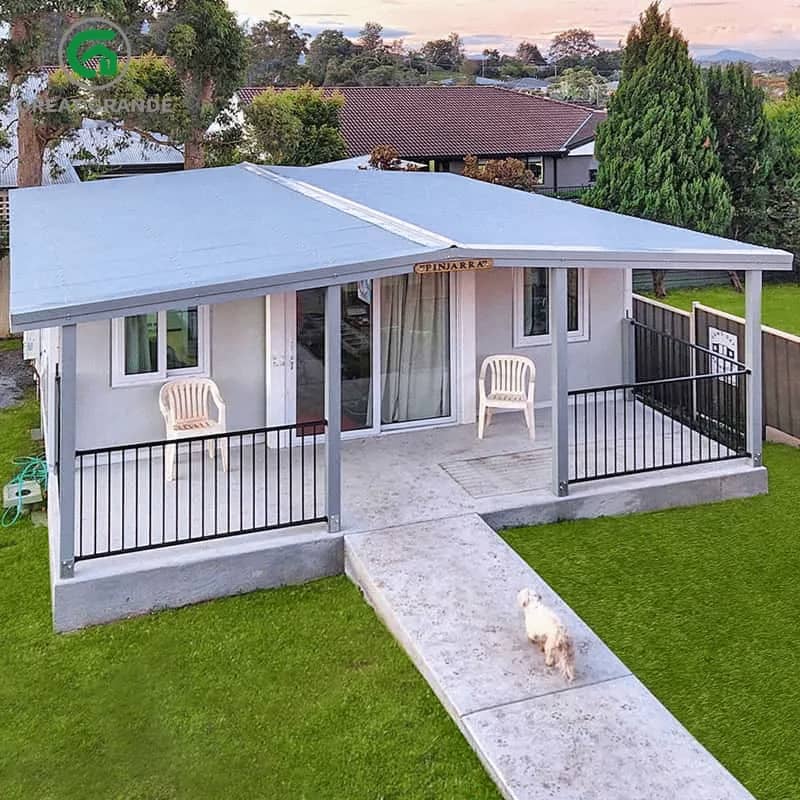

Caractéristiques de conception
Structure modulaire : Le concept de base de la conception d'une maison pliable est la modularité, ce qui signifie que la maison est composée de plusieurs sections indépendantes, chacune pouvant être pliée et dépliée séparément. Cette conception permet une configuration flexible en fonction des besoins de l'utilisateur. Par exemple, les utilisateurs peuvent choisir d'augmenter ou de diminuer le nombre de pièces ou d'ajuster la disposition de la maison selon leurs besoins.
Portabilité et légèreté : les maisons pliables utilisent généralement des matériaux légers tels que l'aluminium et les structures en acier léger, ce qui les rend faciles à transporter et à assembler. De nombreuses maisons pliables peuvent être installées en quelques heures seulement, ce qui réduit considérablement le temps de construction. La conception légère réduit également les coûts de transport, ce qui permet d'utiliser les maisons pliables dans un plus large éventail de domaines.
Esthétique moderne : Les maisons pliantes adoptent une esthétique minimaliste et moderne dans leur conception extérieure. Les grandes fenêtres améliorent non seulement l'attrait visuel, mais assurent également une lumière naturelle abondante, améliorant ainsi le confort de l'environnement de vie. Les murs extérieurs peuvent être personnalisés avec différentes couleurs et matériaux selon les préférences personnelles, renforçant encore l'individualité de la maison.
Espace fonctionnel : L'aménagement intérieur d'une maison pliable met l'accent sur la fonctionnalité, avec souvent des meubles pliables comme des lits, des tables et des chaises pour gagner de la place lorsqu'ils ne sont pas utilisés. Les cuisines et les salles de bains sont également soigneusement conçues pour offrir des équipements de vie essentiels dans un espace limité.
Scénarios d'application
Logement temporaire : Maison pliable Les maisons pliantes sont particulièrement adaptées aux logements temporaires, notamment dans les situations suivant des catastrophes naturelles ou des situations d'urgence. Elles peuvent être rapidement assemblées pour fournir un abri aux personnes touchées. De plus, grâce à leur conception flexible, les maisons pliantes peuvent être agrandies ou réduites en fonction des besoins réels.
Hébergement touristique : Avec la demande croissante d'expériences de voyage personnalisées, les maisons pliantes sont devenues un choix idéal pour les locations de vacances. Elles peuvent être rapidement installées dans des endroits pittoresques, offrant une expérience de vie confortable tout en étant faciles à démonter et à transporter, ce qui les rend adaptées aux marchés de la location à court terme.
Bureaux et espaces de travail : Dans les zones urbaines, les maisons pliantes sont de plus en plus utilisées comme bureaux ou espaces de travail temporaires. Cela est particulièrement vrai pour les startups et les indépendants, où les maisons pliantes offrent un environnement de travail flexible et privé. Leur conception modulaire peut être ajustée en fonction de la taille de l'équipe.
Campus et chantiers : Sur les campus ou les chantiers, les maisons pliantes peuvent servir de salles de classe temporaires, de dortoirs ou de logements pour les travailleurs. Leur fonction de montage rapide est idéale pour une utilisation pendant les phases de construction, répondant aux besoins de base des étudiants ou des travailleurs.
Matériaux
Matériaux respectueux de l'environnement : les maisons pliantes utilisent généralement des matériaux de construction recyclables et respectueux de l'environnement, conformément aux principes du développement durable. Par exemple, les structures en aluminium et en acier léger sont à la fois légères et durables, tout en ayant une valeur de recyclage élevée, réduisant ainsi les déchets de construction.
Matériaux résistants aux intempéries : Pour s'adapter à diverses conditions climatiques, les matériaux extérieurs des maisons pliantes possèdent généralement une excellente résistance aux intempéries. Qu'ils soient exposés à un soleil intense ou à des conditions hivernales rigoureuses, ces matériaux offrent une bonne protection, garantissant un environnement intérieur confortable.
Bonne isolation thermique et acoustique : Le choix des matériaux intérieurs pour une maison pliable est également crucial, en utilisant souvent des matériaux d'isolation et d'insonorisation à haute performance pour assurer le confort de vie. Par exemple, les murs peuvent utiliser des matériaux d'isolation efficaces pour réduire la consommation d'énergie tout en préservant la tranquillité intérieure.
Maisons démontables Les maisons individuelles sont une solution de construction flexible, portable et respectueuse de l'environnement. La combinaison d'une conception modulaire et de matériaux efficaces améliore considérablement l'utilisation de l'espace et l'efficacité des matériaux, offrant aux utilisateurs une expérience de vie très rentable.

